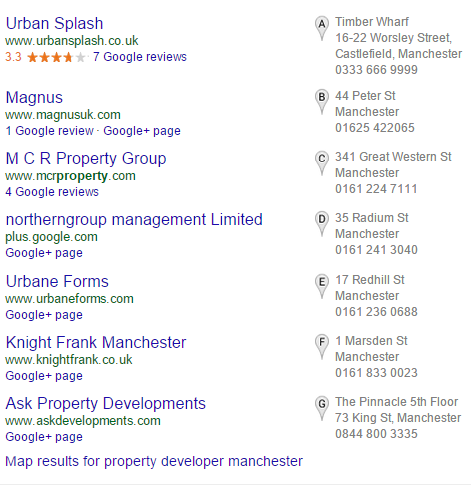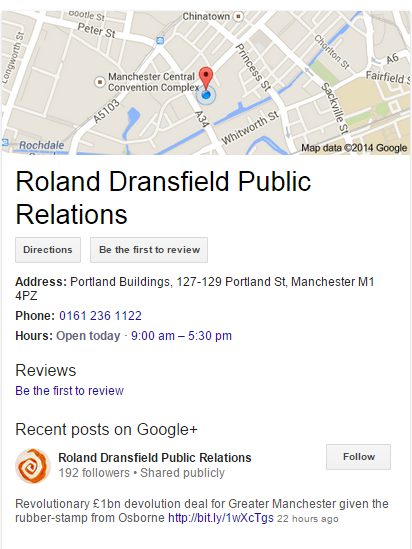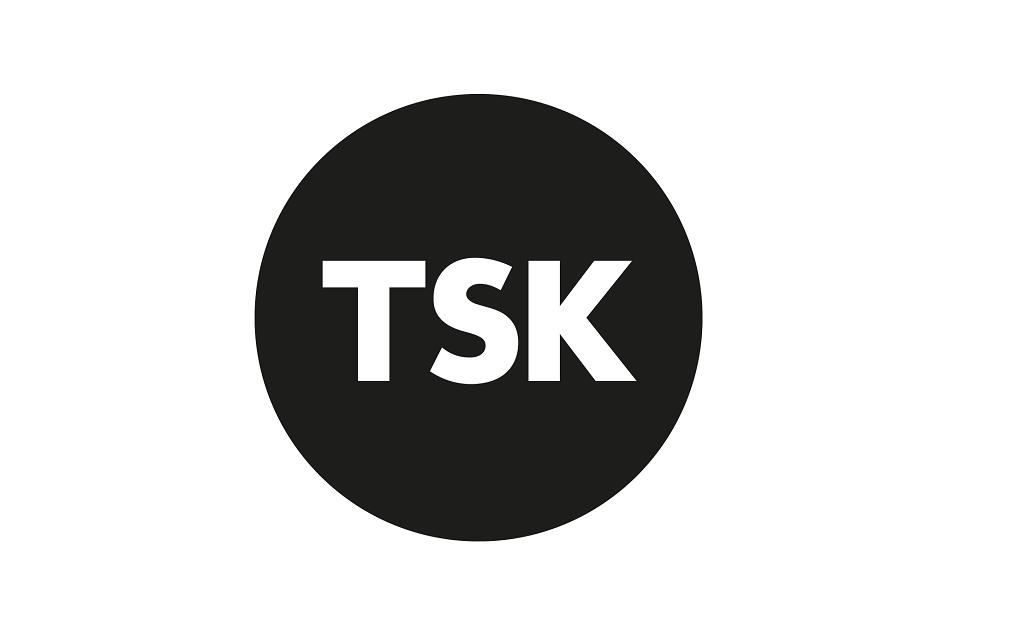The Implications of Semantic Search for the Property Sector
Semantic search is a topic you're likely to have brushed upon if you've kept a proverbial ear to the ground in terms of digital marketing over the past few years.
But what is this arcane technology and will it be a blessing or a curse for property companies looking to compete online?
In this guide, we'll answer some of the most common questions about semantic search and offer practical advice on how property companies can get ahead of the game in the field.
 A Brief Introduction
A Brief Introduction
The world of search is in a constant state of flux. As well as catering for the increasingly diverse ways people source information, buy and interact with the web – major search engines constantly strive to improve performance and deliver the most relevant results to their users.
To this end, there's been an increasing focus on offering personalised results that utilise data beyond the mere terms people type in.
Google, as the de facto search engine of choice, has arguably led the way in this regard. But it's not alone. Companies across a wide variety of sectors, from ecommerce platforms like Amazon, to social networks like Facebook, are also jumping on the personalisation bandwagon in earnest.
So without further ado, let's tackle some of the most common questions about the field:
Q: What is semantics?
Semantics simply describes understanding the meaning behind something. While humans are inherently capable of this feat, it's taken years for technology to come anywhere near catching up with us – and it's still got a long way to go.
Relatively recent advances in the sheer amount of data companies can collect and the ways they can process these to extrapolate trends (sometimes known as 'big data') have opened the floodgates for semantic technology.
In practice, this means that companies utilising these techniques can offer better and more efficient interactions, by tailoring what they offer to you based on a variety of factors.
Q: Why is it a big deal?
Computers haven't traditionally been able to understand natural language the way humans do. And it's no surprise.
Although we take it for granted, the same question asked in a range of different contexts can have a variety of meanings. And that's without taking stuff like dialectical differences into account.
Copyblogger provides a great analogy for this – stating search technology that relied on solely on keywords and Google's ability to crawl ('read') the web was "sort of like dealing with a toddler".
"Milk," the toddler says. He squeezes his tiny little fists.
"Oh, does baby want some milk?"
He shakes his head no.
"Baby spill milk?"
He shakes his head no.
"Baby want to milk goat?"
"It takes one smart parent to ask the right question. And it will take one smart machine to do the same."
However, the parent might be able to improve their suggestions with the knowledge that on the previous nine occasions, when the baby asked for milk they wanted to read a book about a cow, or by consulting statistics from 1,000 toddlers who asked about 'milk' and what it was they eventually sought.
It's easy to see how beneficial it could be from both an efficiency and commercial standpoint to better understand what someone wants when conducting a search – be it on a search engine like Google or an ecommerce platform like eBay.
In terms of the technicalities – great leaps have been made in the field thanks to the ability to collect and compare vast quantities of data, as well as breakthroughs in machine learning that enable previously undetectable trends and relationships to come to light.
 Q: Do I have to be a tech whiz to take advantage?
Q: Do I have to be a tech whiz to take advantage?
Less so than ever before. While there's a few technical elements you'll need to get to grips with (or outsource), for the most part – semantics herald an era where most of the technical legwork won't be done at your end.
When it comes to things like performing well in organic (i.e. non-paid) search, the dawn of semantics means the likes of Google are less focused on rewarding sites that tick technical boxes in terms of optimisation – and placing more emphasis on authority (which is largely discerned from examining human-created data).
Q: When is it coming?
It's already here. While there's not been much mainstream fanfare, the fact of the matter is you've probably been using (and helping to develop) semantic search technology for many years now.
We take features like related results and auto-complete for granted these days, but while you might have noticed Google changing up the format of its results from time to time – you may not have understood the rationale behind this.
The search giant has made iterative improvements to its semantic offerings for many a year now. Back in 2012, it unveiled its flagship Knowledge Graph product, stating:
"The Knowledge Graph enables you to search for things, people or places that Google knows about-landmarks, celebrities, cities, sports teams, buildings, geographical features, movies, celestial objects, works of art and more-and instantly get information that's relevant to your query. This is a critical first step towards building the next generation of search, which taps into the collective intelligence of the web and understands the world a bit more like people do."
Similarly, innumerable named and unnamed updates have been rolled out by the big G as it attempts to make its search engine act more like a human being.
To see its semantic advances in action, we only have to look at Google's growing voice/natural language search capability, its Google Now mobile assistant or watch as it pulls data from external sources through to its results page – offering you a definitive answer (rather than simply suggesting websites) for an ever-growing number of queries.
The Implications for the Property Sector
So given these ever-growing semantic advances, what can property companies that want to perform well online expect in the coming years? And how can they get ahead of the game and start optimising their web-based activities now?
Philosophy: Semantics heralds a fundamental change in the way people interact with the web and particularly search engines. The common assertion is that, once your website is technically healthy and as 'crawlable' (readable to search engines) as possible – its relevance to any given query will be largely determined by a wealth of human-driven data, much of which will be hard to influence.
As such, property companies would be well advised to start building authority in their given sphere right now. Going about this entails a fundamental change in how you approach SEO, social media and general marketing.
These disciplines, and basically any other way that your company interacts with the web (as well as 'offline' elements like customer service), need to be tackled in a holistic manner – rather than as individual bolt-ons that are thought of in isolation.
Content: To succeed in the semantic age, you'll have to produce a consistent stream of authoritative content around your business areas. It's no exaggeration to say what you come up with and how users interact with it is going to be one of the biggest differentiators between you and your online competition in the coming years.
While it's perfectly valid to ask why Google rewards those who produce well-received content, rather than those that are the best – say for example – asset management company they can be – but the fact of the matter is it's a signal (ranking factor) that's worked well for many years and won't be going anywhere.
That leaves property companies with three options:
- Resign yourself to not achieving success in organic search and plunge your budget into paid activities
- Outsource content production
- Produce a steady stream of compelling content in-house
Each option comes with its own challenges, each of which we could easily spend a whole blog post talking about, but there's no way to 'game the system' and doing things half-heartedly is probably going to be worse (in terms of draining resources while not achieving much in terms of ROI) than doing nothing at all.
 Keywords and topics:While keyword research will continue to be a useful barometer for discerning what your key audiences are interested in and providing content to meet these needs – the consensus among industry experts is that improved semantic search capabilities will prompt a decreased focus on keyword data.
Keywords and topics:While keyword research will continue to be a useful barometer for discerning what your key audiences are interested in and providing content to meet these needs – the consensus among industry experts is that improved semantic search capabilities will prompt a decreased focus on keyword data.
Instead of attempting to optimise for specific or general key terms – you should look to 'own' topics related to your specific sector. Google will become increasingly good at discerning what you're talking about – without you having to go out of your way to flag it in elements like the body of your content and metadata.
In short, create content that's compelling for humans and (assuming your site is set up for 'crawlability'), the optimisation should largely take care of itself.
Social:While there's still some debate about how (and if) Google uses social data when determining where any given page should rank for a query – at the very least, there's a strong correlation between entities that perform well on social and those that excel in organic search.
While Google certainly has the infrastructureand ability to process some social signals – it's delivered mixed messages about how and if these associations play a role in influencing search results.
To summarise, at best, having your content shared on social channels that Google can access will go some way to influencing how it indexes (reads and stores data on) specific pages on your site.
However, even if these signals don't directly influence search results – they almost certainly have a range of holistic benefits. For instance, UK Linkology's Adam Connell suggests:
- "Your content is exposed to a much wider audience bringing brand awareness into play.
- Referral traffic to your content which increases the likelihood that someone will link to your content.
- The potential to increase your followers which leads to more visibility, returning traffic and the building of a community.
- When your content is shared, this increases the trust associated with your brand, and when shared by a market influencer this can have a much bigger impact.
- When someone you follow shares a link on G+, this (can) appear under search results when that particular page is displayed.
- Google+ displays your friends +1's in your stream, giving another opportunity for your content to gain traction.
- When there are more social shares on a piece of content, the social proof factor begins coming into play, which in turn influences how many more social shares and backlinks that the content earns (amongst other benefits)."
And Google Semantic Search author David Amerlane adds:
"Semantic search requires a strong and constant social signal. In the semantic web attributes such as trust and reputation revolve around identity. These are all aspects of the social web. An online business without a social presence is immediately handicapped."
As with much of online marketing, however, it's not a case of simply being 'in it to win it' and you have to commit to engaging in social in earnest if you're going to get the most out of it.
Use Google+
Aside from whether the social signals generated on this platform have any affect on your site's position in search results – getting on Google+ is a generally good idea.
Google+ is one of the platforms used to power Google's Knowledge Graph and its integration with other Google products, like Maps/Local and YouTube is presents a great opportunity for those looking to exploit semantic search.
It also presents several other potential benefits, including:
- Personalised search for users that are signed up for G+ and logged in to their Google Account
- Google will index content you publish to G+, potentially enabling it to be 'read' faster and appear in search results more quickly
- Despite relatively lacklustre performance when compared to the likes of Facebook and – to a lesser extent – Twitter, it's generally a good platform to be on, enabling you to target posts to specific audiences, record and stream video/audio for free.
Structured Data (markup): As mentioned, advances in semantic search mean that when it comes to discerning what your site is about – a lot of the technical work will be done at the search engine's end.
However, you can help provide signals for this by adding something called 'structured data mark up' when possible. Behind this intimidating term lurks a fairly simple concept – whereby manual updates are made to your site to help search engines understand what it's all about.
When looking into this, you might come across references to something called Schema.org. This is a joint venture by Google, Microsoft and Yahoo! which provides webmasters with a set of HTML (the language websites are built in) terms that can be added in behind the scenes to help search engines understand what they're looking at.
The types of data this system can categorise is ever-expanding, but just some of the most popular things it's currently used for include:
- Articles
- Movies
- Products
- Local Businesses
- Restaurants
- Events
While property companies (depending on their specific field) are somewhat limited in what they're able to mark up currently (namely articles, products and geography) – the scope of structured data like this is constantly growing, so it's never too early to get your foot in the door.
Google even provides its own structured data markup helper – which is fairly easy to use (or hand over to your webmaster) and incorporate if your site uses a standard content management system like WordPress.
Go Local:Setting up and optimising a Google+ Local Business page is a great way to boost the potential of your business appearing for relevant searches (e.g. a product/service that you provide) that are personalised for the searcher's location.
This is likely to be of increasing importance in terms of mobile search and Google Now, which uses the Knowledge Graph to offer personalised results (sometimes without you even asking for them), depending on where the searcher is and what they might be looking for.
Don't neglect your site's technical health: While all of the above factors will continue to grow in importance in the coming years, Google's algorithm takes more than 200 signals into account when assessing where your site should appear for a query, many of which are associated with its technical health.
It's vital to make sure Google can properly 'crawl' your site, but data on how users interact (or potentially interact) with it will continue to play a major role in your site's ranking potential.
This includes factors like how long it takes pages to load, whether people quickly return to search results after visiting your site (creating a negative association in Google's eyes) and whether your site is optimised for mobile devices (results are structured differently for mobile searches and failing to cater for these can be a self-imposed handicap).
What Next?
While the above hopefully offers a good introduction for property companies looking to take advantage of this rapidly-developing search technology – semantic search is a fascinating topic, with many facets that are well worth looking into.
So if you've got any questions about how any of the strategies we've discussed might work for your business, be sure to leave us a comment below or give us a shout on Twitter – we love to hear what you have to say.
And if you're looking to get a leg up on your online competitors via semantic search, or simply want to find out more about digital marketing, be sure to download our free guide for property companies today:
Selected industry experts bring you insight and expert advice, across a range of sectors.
Subscribe for free to receive our fortnightly round-up of property tips and expertise
Selected industry experts bring you insight and expert advice, across a range of sectors.
Subscribe for free to receive our fortnightly round-up of property tips and expertise






